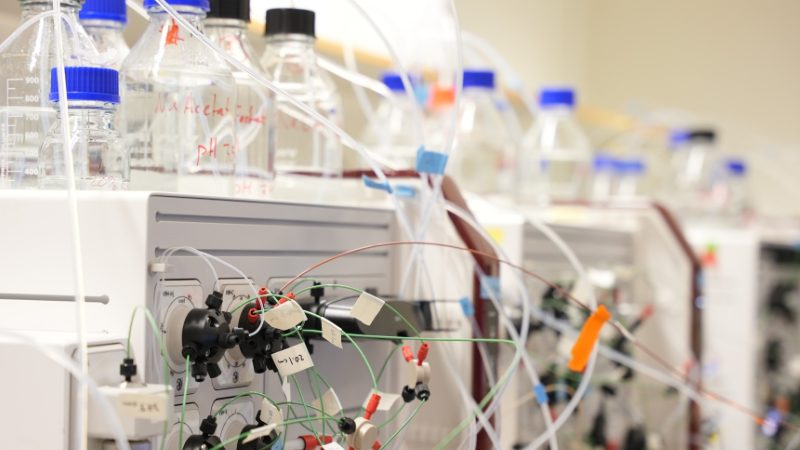Author: Madelène Isaksson, Lund University (CODOBIO)
Antibodies are an important part of our immune system and work by recognizing potential hazards entering the body, such as bacteria and viruses, and activating an immune response if necessary. Antibodies that are produced in the laboratory, so called monoclonal antibodies, are widely used in modern medicine for diagnostics as well as for treating infections and some types of cancer, e.g. breast cancer.
The production of monoclonal antibodies is expensive
Monoclonal antibodies are typically produced in mammalian cell cultures by tricking the cells to synthesize a specific antibody. After the production, the antibody needs to be recovered in order to meet the quality requirements of therapeutics. The recovery or purification is performed in several steps and these steps are known as the downstream process. This purification process is very expensive and often considered as one of the main challenges in antibody production. The established antibody downstream process is based on a series of well-known unit operations run in batch mode, involving a lot of manual labour. This has been successful in the past regarding quality, although it lacks in productivity.
The solution is continuous downstream processing
One way to increase the productivity of the downstream process and thus decreasing the antibody cost of goods is by shifting from a batch to an integrated continuous process. In such a process, all the unit operations are physically connected, and the process is run in a continuous mode, meaning that it has a simultaneous inflow of non-purified material and outflow of pure antibody. An efficient antibody purification process should also be automized and be able to operate independently. In my research, I combine knowledge within process design, predictive modeling and automation, with the aim to develop so called “smart-factories” for antibody purification. A “smart-factory” should respond to changes in the process and regulate itself, to continuously produce a homogenous product as well as require very little input of manual work. In a recent paper, my co-authors and I presented a pilot‐scale demonstration of a fully continuous integrated and automated bioprocess for the production and purification of a therapeutic antibody. The purification process was operated for 20 consecutive days, and we could not observe any sign of deterioration of the process performance. The downstream process responded to changes in product inlet concentration and continuously provided a homogenous final product of high purity with one of the highest productivities reported for this type of process. This successful demonstration of an integrated continuous antibody purification process can hopefully contribute to the introduction of similar processes in the industry.
Reducing costs and increasing availability for patients
I believe that we have just seen the beginning of the biopharmaceutical era with monoclonal antibodies being one of the most important players. Since antibodies can be produced to recognize practically any type of peptide, the possibilities for new drug development are vast and antibodies will continue to play an important part in therapy. As previously mentioned, the costs associated with antibody production are high, and the main bottleneck are the purification steps. If we can make the downstream process more efficient and consequently reduce the associated costs, these types of biopharmaceuticals should be accessible for a larger part of the population and thus increase the quality of life for many.
Foto: acib
